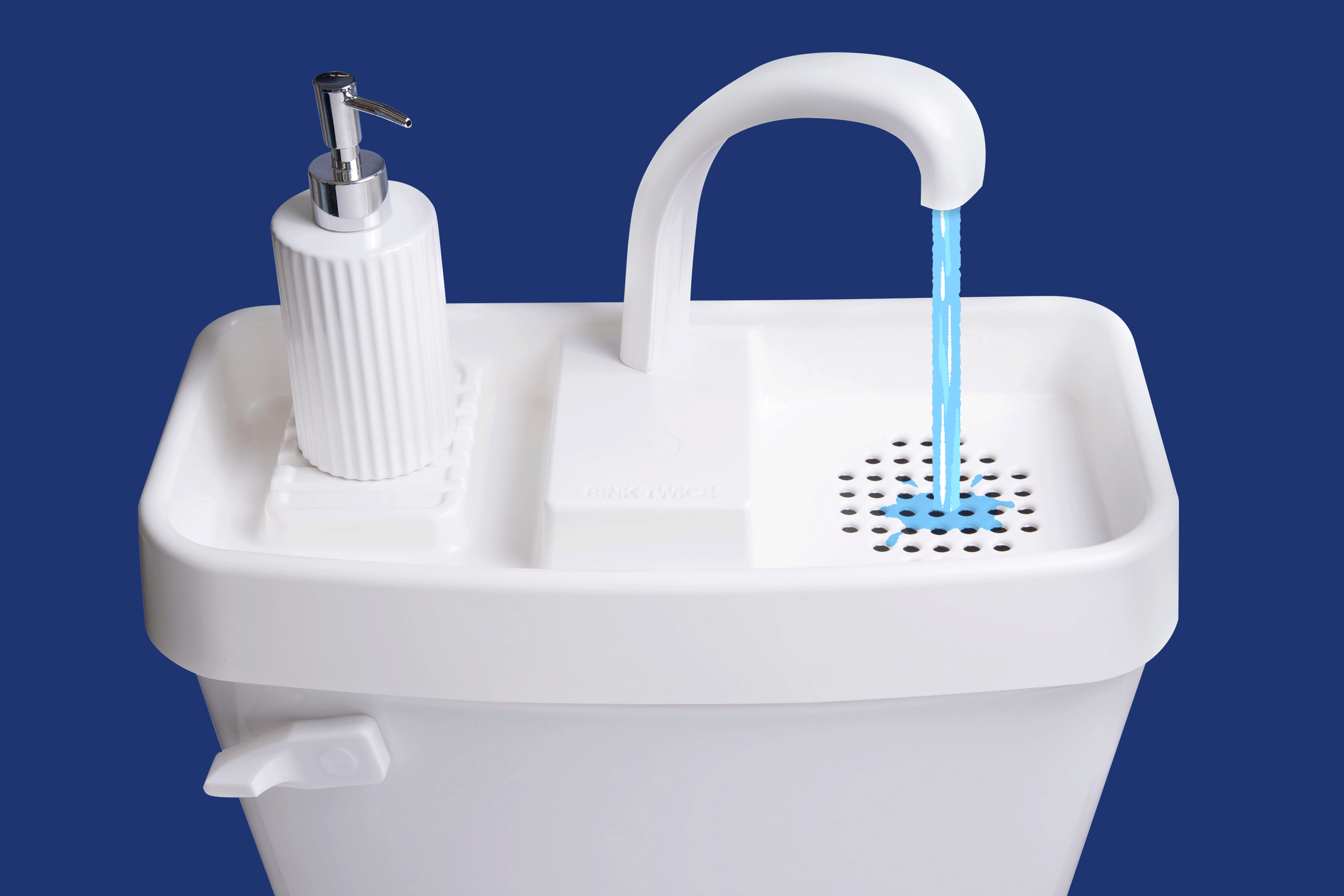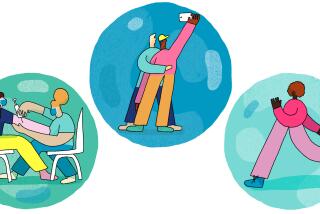Regular and effective lathering up of the hands can kill cooties and dramatically reduce the spread of illness. It’s time we all came clean.
- Share via
In “As Good as It Gets,” Jack Nicholson portrays Melvin, a germophobe whose medicine cabinet is stocked wall-to-wall with Neutrogena soap. When washing his hands, Melvin opens a box, lathers up, then tosses out the barely used bar.
But the compulsive behavior continues. He immediately grabs another fresh bar of soap, lathers up again, and throws that bar out, too.
OK, Melvin’s crackers, but he has the right idea when it comes to effective germ-killing. It’s not so much the whole body as it is the hands--especially nowadays as flu and cold run rampant throughout the land.
“Whether it’s at home, at day care, at the office or at the hospital, the hands are how infections are spread,” said Dr. David Pegues, chief of infection control at UCLA Medical Center. “Regular and effective hand-washing greatly diminishes the risk of illnesses.”
Medically speaking, health experts believe Americans wash their bodies too much and their hands too little. The national habit of greeting each morning with a shower is really overkill, they say.
“As Westerners, we are obsessive about showering,” Pegues said. “Such bathing really doesn’t decrease the risk of infection. But we do it mainly for reasons of personal hygiene and to smell good.”
If only we paid as much attention to our hands, instead of washing them--at most--a couple times a day. And can you spell s-o-a-p?
Hands, unlike your body, are little magnets, picking up germs from everywhere--phone receivers, shopping cart handles, door knobs, other people’s hands.
Proper hand-washing is among the best defenses against picking up the flu, a cold, a cough or an intestinal infection, according to the federal Centers for Disease Control and Prevention. And it’s an especially effective preventive step for children. They often have a difficult time fighting off illnesses because they’re children--and good hygiene is not a top priority.
According to a 1996 Purdue University study, kids who washed their hands four or more times a day missed 24% fewer school days from colds and flu--and 50% fewer days from stomach illness--than kids who didn’t wash as often.
But the problem many kids--and adults--run into when they finally get around to washing their hands is bad technique, health officials say. It’s usually a dab of soap and a hurried rinse.
Wrong, say the experts. Just putting your hands under a running faucet doesn’t get rid of germs. It merely relocates them on your hands.
You’ve got to make use of soap, warm water, hand friction and paper towels for drying for an effective job. (As a general rule, you should wash your hands before preparing food, before eating, after going to the bathroom, wiping your nose, coughing and sneezing.)
These steps should remove 95% of germs from your hands, according to the Mayo Clinic. Of course, the routine can dry your hands out quickly, so it’s a good idea to keep hand lotion around.
Ironically, obsessive-compulsive hand-washers like Melvin actually put themselves at a higher risk for infection, the experts say. With cracked and dry hands, it’s much easier for germs to penetrate and thrive inside the skin.
(BEGIN TEXT OF INFOBOX / INFOGRAPHIC)
Hand-to-Hand Combat: The Germs We Battle
Majoris Microbis (phone receiver germs)
Manus Germis (germs from another person’s hand)
Handis Clingus (germs from a cloth hand towel)
Carte Diem (germs from a shopping cart handle)
Quid Pro Doe (doorknob germs)
Fauxis Cum Laude (germs from a bathroom faucet)
(BEGIN TEXT OF INFOBOX / INFOGRAPHIC)
Go Wash your hands
1. Apply soap to hands.
2. Put hands under warm running water.
3. Rub hands together for at least 10 seconds.
4. Make sure to wash the back of the hands, between fingers and under fingernails, where bacteria are most likely to hide.
5. Rinse hands with warm water.
6. Turn off faucet with a paper towel.
7. Dry hands with a paper towel--germs can live for quite a while on moist cloth towels.
More to Read
Sign up for The Wild
We’ll help you find the best places to hike, bike and run, as well as the perfect silent spots for meditation and yoga.
You may occasionally receive promotional content from the Los Angeles Times.






